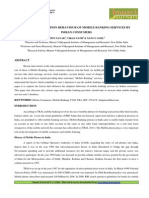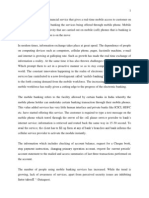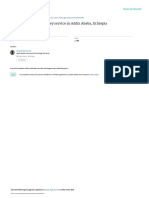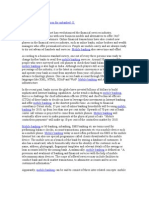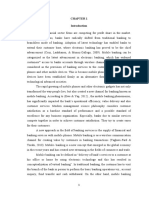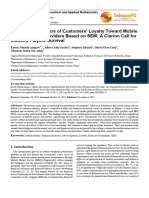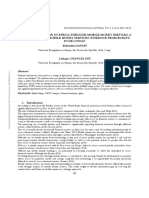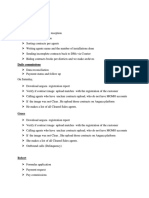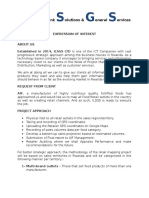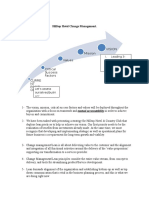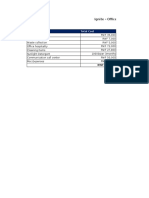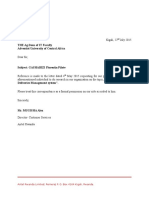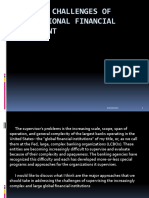0% found this document useful (0 votes)
92 views12 pagesCustomer Perception Towards MTN Mobile Money: Partial Fulfillment To Attain A Degree in Finance
This document provides an overview of a dissertation on customer perception of MTN Mobile Money in Rwanda. The dissertation was submitted in partial fulfillment of a degree in finance. The dissertation aims to understand how customers perceive MTN Mobile Money in relation to their expectations. It will examine factors that have influenced customer decisions to use MTN Mobile Money, such as increased network coverage, affordable prices, widespread distribution outlets, network reliability, customer service, and government policy. The scope of the study is MTN customers in Remera Tax Park, the National University of Rwanda, and ONATRA offices.
Uploaded by
secretlivesCopyright
© Attribution Non-Commercial (BY-NC)
We take content rights seriously. If you suspect this is your content, claim it here.
Available Formats
Download as DOCX, PDF, TXT or read online on Scribd
0% found this document useful (0 votes)
92 views12 pagesCustomer Perception Towards MTN Mobile Money: Partial Fulfillment To Attain A Degree in Finance
This document provides an overview of a dissertation on customer perception of MTN Mobile Money in Rwanda. The dissertation was submitted in partial fulfillment of a degree in finance. The dissertation aims to understand how customers perceive MTN Mobile Money in relation to their expectations. It will examine factors that have influenced customer decisions to use MTN Mobile Money, such as increased network coverage, affordable prices, widespread distribution outlets, network reliability, customer service, and government policy. The scope of the study is MTN customers in Remera Tax Park, the National University of Rwanda, and ONATRA offices.
Uploaded by
secretlivesCopyright
© Attribution Non-Commercial (BY-NC)
We take content rights seriously. If you suspect this is your content, claim it here.
Available Formats
Download as DOCX, PDF, TXT or read online on Scribd
/ 12




